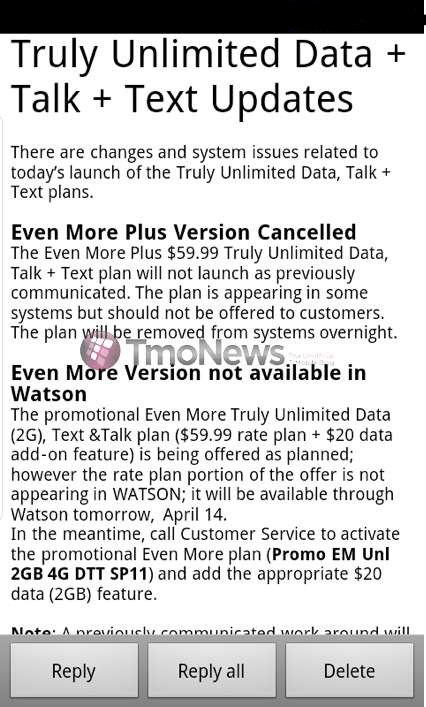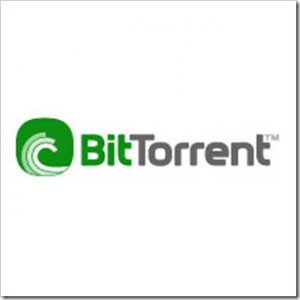
Here today, Gone today. T-Mobile withdraws a prepaid plan hours after sending press releases about it. (Image: TmoNews)
Imagine if your “unlimited” phone line came with a hidden limit — after 50 calls a month, each additional call would take at least five minutes to complete.
In the data world, speed throttles for “heavy users” deliver a similar frustrating experience. That is what makes T-Mobile’s newly-announced “unlimited” use plans so ironic. They are not truly unlimited at all.
T-Mobile’s “Even More” plan ($79.99) announced today for their contract/postpaid customers promises unlimited calls, texts, and data sessions with a very big asterisk — after using 2GB of data in a month, the company will throttle your data speed to near-dialup until your next billing cycle starts.
Providers routinely claim this doesn’t represent false advertising because you can still use data services on your phone, as long as you are willing to wait… a… very… long… time….
T-Mobile also managed to take back an announced plan for prepaid customers literally hours after seeding press releases to as many news agencies as possible.
In our copy, “Even More Plus” was supposed to deliver the same features as “Even More,” but at a much lower price — $59.99 per month. It too was sold as “truly unlimited” for all of five hours before company officials yanked it, perhaps realizing their prepaid plan threw their postpaid/contract customers under the bus — charging them $20 more a month for same plan prepaid customers were to get for less.
TmoNews, home to a number of employees willing to share inside information about T-Mobile’s business, shared a copy of a notification message telling employees to avoid signing people up for the cheaper prepaid plan — it has been withdrawn. But if customers insist, T-Mobile will agree to let you have the lower price, but only if you call by the end of today.
We noted with interest T-Mobile labels what they sell as “truly unlimited data” as the “$20 (2GB) feature” add-on in their own internal sales system.
Jeff, a Stop the Cap! reader grandfathered on an earlier T-Mobile data plan says it’s classic “bait and switch” advertising.
“My data plan offers 5GB of usage before the speed throttle kicks in, and now T-Mobile is advertising a 2GB data plan that they call ‘unlimited’,” Jeff notes. “A T-Mobile rep actually tried to tell me the new plan was better than the one I have now, which is the kind of new math that will make T-Mobile’s marketing department fit in real well with AT&T if this merger is approved.”


 Subscribe
Subscribe





